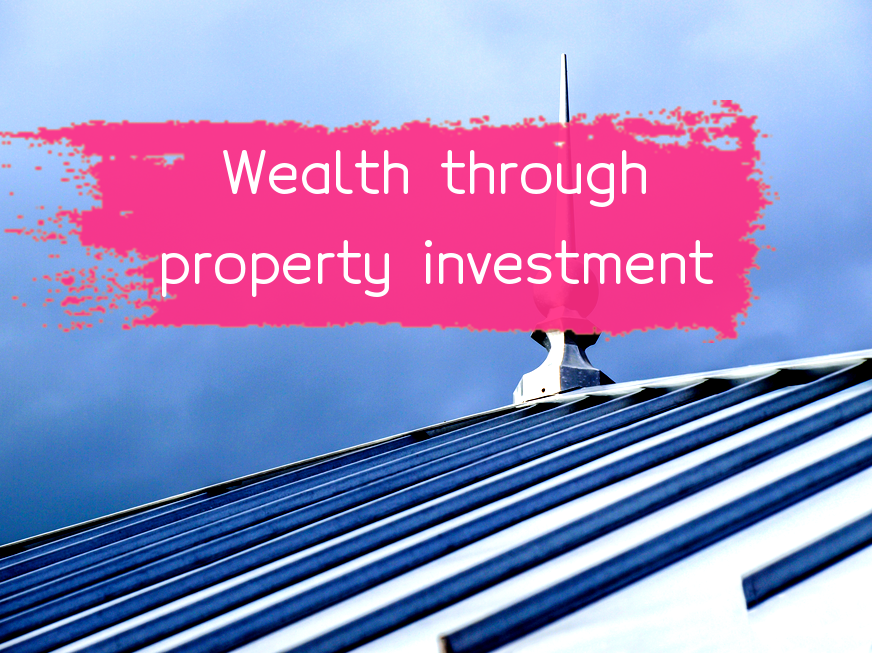Building wealth is a long-term process that involves saving, investing, and making wise financial decisions. Here are some ways to build wealth:
- 1. Start by creating a budget: Creating and sticking to a budget is the foundation of building wealth. You need to track your income and expenses to identify areas where you can cut back and save more.
- 2. Live below your means: To accumulate wealth, you need to spend less than you earn. This means cutting back on unnecessary expenses like eating out, buying clothes you don't need, or upgrading to the latest phone every year.
- 3. Save for emergencies: It's crucial to have an emergency fund to cover unexpected expenses like medical bills, car repairs, or home repairs. A good rule of thumb is to save three to six months of living expenses.
- 4. Maximize retirement savings: Take advantage of tax-advantaged retirement accounts like 401(k)s, IRAs, or Roth IRAs. Try to save at least 15% of your income for retirement.
- 5. Invest wisely: Investing is essential to build wealth over the long term. Consider investing in low-cost index funds or ETFs that track the performance of the stock market. This allows you to diversify your portfolio and minimize risk.
- 6. Consider real estate: Real estate can be a great way to build wealth over the long term. You can invest in rental properties or even your own home. However, real estate requires a significant upfront investment and can be challenging to manage.
It is possible to build wealth one house at a time, but it's not without risks. Real estate investing can be lucrative, but it requires a significant upfront investment, and it's not a liquid asset. If you decide to invest in real estate, it's crucial to do your research, work with a real estate agent who understands the market, and have a solid plan for managing and maintaining the property. It's also essential to diversify your portfolio and not put all your savings into one asset class.
Buy Just One House at a Time - Become Wealthy
Buying just one house at a time can be a smart strategy towards building wealth in the long run. Here are some ways in which it can help:
- 1Real estate appreciates over time: Real estate, typically, appreciates over time. This means, the longer you hold on to your property, the more valuable it will become. So, by buying just one property and holding on to it for a long period, you can build substantial wealth through appreciation.
- 2Growing equity: Equity is the difference between the value of your home and the amount you owe on it. By making regular mortgage payments, you gradually increase your equity in the home. This increased equity can be used to invest in another property, or can be tapped into during times of need.
- 3Rental income: Buying a property and renting it out can provide you with a steady stream of income. This can help you pay off your mortgage faster and generate more cash flow for investment opportunities.
- 4Tax benefits: Owning a property comes with various tax benefits. You can deduct mortgage interest, property taxes, and other expenses from your income, reducing your overall tax burden.
- 5Low-risk investment: Real estate is a relatively low-risk investment compared to other investment options. The value of the property may fluctuate, but it is unlikely to lose its value completely.
- 6Opportunity for flipping: Flipping a property is buying it, fixing it up, and selling it for a profit. By buying just one property at a time, you can take advantage of flipping opportunities when they arise, and make significant profits.
In conclusion, by buying just one property at a time, you can take advantage of a variety of wealth-building opportunities in real estate, while keeping your risks low. Over time, this can help you build substantial wealth and create a solid financial foundation for yourself and your family.
Your First Deal Doesn't Need to be a Home Run
I can provide an explanation for your question.
No, your first deal does not have to be a home run. While its always great to hit a home run with your first deal, the reality is that success in real estate often comes from consistent effort over time, rather than relying on one massive deal.
Additionally, if you put all your eggs in one basket and only focus on landing that one big deal, you could end up missing out on other opportunities or wasting time and resources on a deal that may not pan out.
Its important to remember that not every deal will be a home run, but even small or average deals can add up over time and help to build your skills, confidence, and reputation in the industry. Each deal is an opportunity to learn, grow, and improve your craft as a real estate professional.
Why Houses Are Your Best Investments
There are several reasons why houses are considered one of the best investments:
- 1Appreciation: Over time, houses tend to increase in value due to various factors like inflation, increased demand, and improvements made to the property. This means that homeowners can sell their property for a higher price than they paid for it, resulting in a significant return on investment.
- 2Rental income: Houses can also generate a steady stream of rental income if the owner decides to rent it out to tenants. This can be a consistent form of passive income, with the potential to cover or exceed the cost of mortgage payments and provide additional cash flow.
- 3Tax benefits: There are various tax incentives available to homeowners, such as deductions for mortgage interest and property taxes. Additionally, any profits made from selling a primary residence may be tax-free up to a certain amount, making houses an attractive investment option.
- 4Illiquidity: Since houses are generally illiquid assets, their value is less prone to market fluctuations, making them a stable long-term investment. This can help mitigate risks associated with more volatile forms of investment like stocks and other securities.
- 5Tangible asset: Unlike other investments like stocks, bonds, or mutual funds, houses are tangible assets that provide a sense of security and can be passed down through generations, creating a legacy.
In conclusion, houses offer many benefits that make them one of the best investment options available, from guaranteed appreciation to tax benefits and steady rental income. While investing in real estate requires a significant upfront investment, its long-term potential and stability make it an attractive choice for many investors.
The Right House = More Profits & Less Hassle
Finding the right house can definitely result in more profits and less hassle. Let's break this down in detail:
More Profits:
- 1Appreciation: The right house in the right location will appreciate in value. This means that as time goes by, the house will be worth more than what you originally paid for it. This can lead to a higher profit when you decide to sell.
- 2Renting: If you're looking to buy a house as an investment property, finding the right house will result in a higher rental income. A house in the right location, with the right amenities, and in good condition will attract renters and allow you to charge a higher amount for rent.
- 3Renovations: If you're willing to put in the effort, finding a house that needs some renovations can result in increased profits. By improving the condition and appearance of the house, you can increase its value and make a higher profit when you decide to sell.
Less Hassle:
- 1Move-In Ready: The right house will most likely be move-in ready, which means that you won't have to deal with any major repairs or renovations right away. This will save you time and hassle of dealing with contractors and repairs.
- 2Location: Finding the right house in the right location will also result in less hassle. Living in a good neighborhood, close to amenities, and in a safe area will mean that you won't have to deal with issues like high crime rates or a lack of convenience.
- 3Resale Value: Choosing a house with good resale value means that you won't have to worry about being stuck with a house that's difficult to sell. When it's time for you to move on, you can be sure that the location, condition, and amenities of the house will attract potential buyers.
In summary, finding the right house can lead to more profits and less hassle because of its increased value, higher rental income, and easier resale. Additionally, move-in ready homes and good locations result in less potential for repairs, inconvenient living conditions, and difficulty selling in the future.
The Right House = Better Tenants & Less Hassle
Having the right house can result in better tenants and less hassle for a number of reasons. Here are some reasons why:
- 1Location: The location of the house is very important when it comes to attracting good tenants. If the house is located in a desirable area with good schools, close to public transport, shopping centers and other amenities, it is more likely to attract tenants with higher income who are willing to pay higher rent. Such tenants are usually more responsible and reliable.
- 2Condition of the house: The overall condition of the house, including its age, appearance, and maintenance, can also impact the type of tenants it attracts. A well-maintained and clean house will attract tenants who are more inclined to keep the place clean and tidy. Such tenants are also more likely to pay their rent on time, as they value the quality of the living space and want to maintain a good relationship with the landlord.
- 3Amenities: The amenities provided in the house can also impact the kind of tenants that are attracted to it. For instance, a house with a swimming pool, garden, or garage is likely to attract families with children who are looking for more space and outdoor areas for their kids to play. On the other hand, a smaller apartment with a gym and laundry facilities may be more attractive to young professionals who value convenience and modern amenities.
- 4Rental Cost: The rental cost of the house can also play a significant role in attracting the right kind of tenants. If the rental cost is too expensive, it may attract tenants who are not willing to pay, leading to late payments or even eviction. Similarly, if the rental cost is too low, it may attract tenants who are only interested in cheap accommodation and may not take good care of the house.
In conclusion, having the right house can make all the difference when it comes to finding good tenants and minimizing the hassle that comes with managing rental properties. Landlords who take into consideration the factors mentioned above are more likely to attract reliable and responsible tenants who pay their rent on time, take good care of the property, and maintain a positive relationship with the landlord.
Just one more thing: if you liked the article, please like us on social media and share this article with friends.



